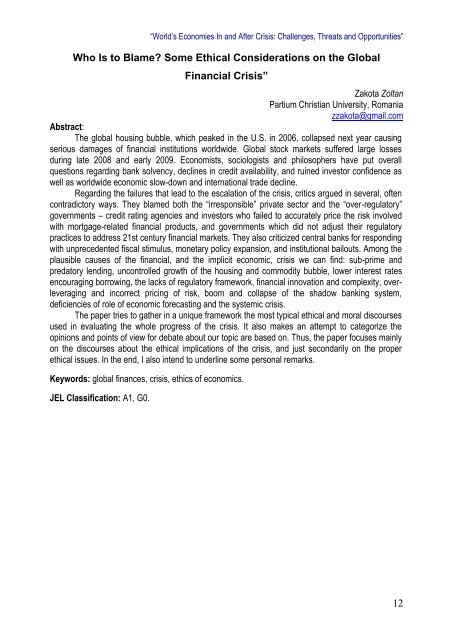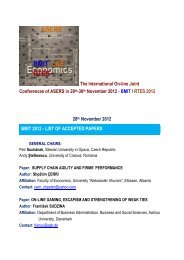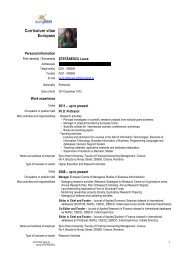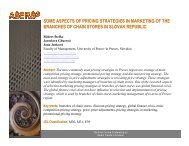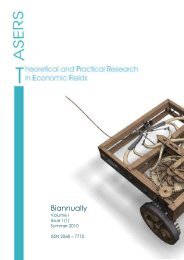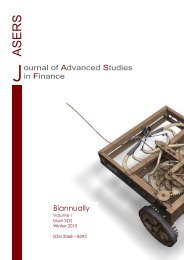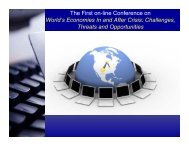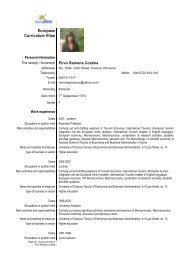eBook of Abstracts - ASERS
eBook of Abstracts - ASERS
eBook of Abstracts - ASERS
You also want an ePaper? Increase the reach of your titles
YUMPU automatically turns print PDFs into web optimized ePapers that Google loves.
“World’s Economies In and After Crisis: Challenges, Threats and Opportunities”<br />
Who Is to Blame Some Ethical Considerations on the Global<br />
Financial Crisis”<br />
Zakota Zoltan<br />
Partium Christian University, Romania<br />
zzakota@gmail.com<br />
Abstract:<br />
The global housing bubble, which peaked in the U.S. in 2006, collapsed next year causing<br />
serious damages <strong>of</strong> financial institutions worldwide. Global stock markets suffered large losses<br />
during late 2008 and early 2009. Economists, sociologists and philosophers have put overall<br />
questions regarding bank solvency, declines in credit availability, and ruined investor confidence as<br />
well as worldwide economic slow-down and international trade decline.<br />
Regarding the failures that lead to the escalation <strong>of</strong> the crisis, critics argued in several, <strong>of</strong>ten<br />
contradictory ways. They blamed both the “irresponsible” private sector and the “over-regulatory”<br />
governments – credit rating agencies and investors who failed to accurately price the risk involved<br />
with mortgage-related financial products, and governments which did not adjust their regulatory<br />
practices to address 21st century financial markets. They also criticized central banks for responding<br />
with unprecedented fiscal stimulus, monetary policy expansion, and institutional bailouts. Among the<br />
plausible causes <strong>of</strong> the financial, and the implicit economic, crisis we can find: sub-prime and<br />
predatory lending, uncontrolled growth <strong>of</strong> the housing and commodity bubble, lower interest rates<br />
encouraging borrowing, the lacks <strong>of</strong> regulatory framework, financial innovation and complexity, overleveraging<br />
and incorrect pricing <strong>of</strong> risk, boom and collapse <strong>of</strong> the shadow banking system,<br />
deficiencies <strong>of</strong> role <strong>of</strong> economic forecasting and the systemic crisis.<br />
The paper tries to gather in a unique framework the most typical ethical and moral discourses<br />
used in evaluating the whole progress <strong>of</strong> the crisis. It also makes an attempt to categorize the<br />
opinions and points <strong>of</strong> view for debate about our topic are based on. Thus, the paper focuses mainly<br />
on the discourses about the ethical implications <strong>of</strong> the crisis, and just secondarily on the proper<br />
ethical issues. In the end, I also intend to underline some personal remarks.<br />
Keywords: global finances, crisis, ethics <strong>of</strong> economics.<br />
JEL Classification: A1, G0.<br />
12


